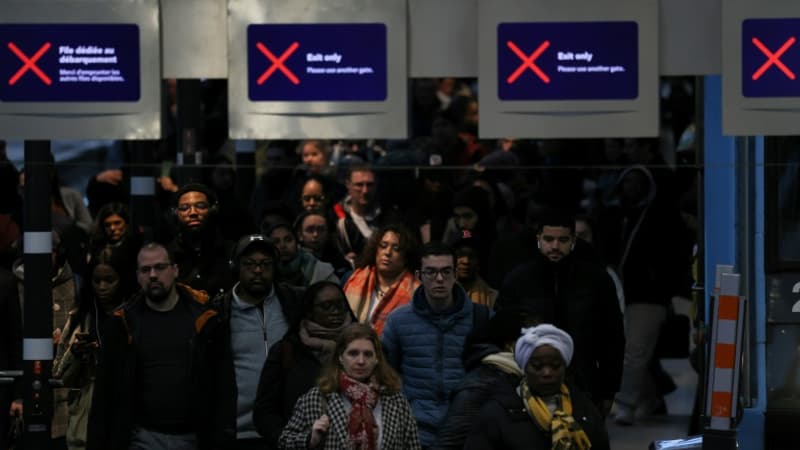The little phrases that trigger great anger. That of the Minister of Relations with Parliament, Marie Lebec, is one of them.
According to Marie Lebec, if “protecting the right to strike is essential”, she suggests “questioning when we have a public service mission.” She thus comments on a request from LR and the centrists, acknowledging that she has not yet read the bill.
We must “protect the right to strike”
While waiting for this debate, the reactions of the unions were quick and strong. For Sophie Binet, general secretary of the CGT, if something must be protected “it is the right to strike, a fundamental right enshrined in the Constitution and international law.”
For Didier Mathis, secretary general of Unsa Ferroviaire, interviewed by BFM Business, the government “opens a Pandora’s box.” “The term ‘sacralize’ to destroy a right with constitutional value is a bit strong,” Didier Mathis told BFM Business, adding that “Marie Lebec reacts quickly, which is very bad for social dialogue.”
Didier Mathis also questions what he considers a paradox.
Furthermore, he recalls that when farmers blocked the roads restricting the free movement of users, “no one proposed banning these methods that block many more people than a strike at the SNCF.”
The strike in Germany and Italy
Last weekend, in the middle of the school holidays, three quarters of the controllers stopped their work, leading the SNCF to cancel numerous trains. This action angered Gerard Larcherpresident of the upper house.
On Wednesday, UDI senator Didier Marseille sent a text proposing grant the government an annual capital of 60 days of strike prohibition, distributed by decree within a limit of fifteen days per prohibition period. This proposal is inspired by the regulations applied by several European countries.
In Germany, the law grants private sector employees the right to strike. On the other hand, civil servants, who enjoy a lifetime job guarantee, do not have access to it. But since 1994, new railway workers hired at Deutsche Bahn, the German public railway company, have been subject to private law and can therefore stop working.
In Italy, it is impossible for public services, including rail transport, to go on strike during certain times of the year, linked in particular to school and Christian holidays. Thus, from December 19 to January 7, during Easter, on All Saints’ Day, but also during the first days of the summer holidays, at the end of June and beginning of July, railway workers cannot declare themselves on strike. This law, which dates back to 1990, also applies during peak hours, between 7 a.m. and 10 a.m. and between 6 p.m. and 9 p.m., for employees of local transport companies.
Source: BFM TV


